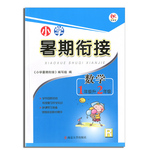题目内容
Japan's unemployment rate stood_________ at a near-record 5.4 percent in April.
- A.changed
- B.changing
- C.unchanged
- D.unchanging
C
at a near-record 5.4 percent 成为选择的依据。“日本的失业率在四月份一直徘徊在接近最高记录的百分之五点四左右。”
at a near-record 5.4 percent 成为选择的依据。“日本的失业率在四月份一直徘徊在接近最高记录的百分之五点四左右。”

练习册系列答案
 波波熊暑假作业江西人民出版社系列答案
波波熊暑假作业江西人民出版社系列答案 学而优暑期衔接南京大学出版社系列答案
学而优暑期衔接南京大学出版社系列答案 Happy holiday欢乐假期暑假作业广东人民出版社系列答案
Happy holiday欢乐假期暑假作业广东人民出版社系列答案
相关题目